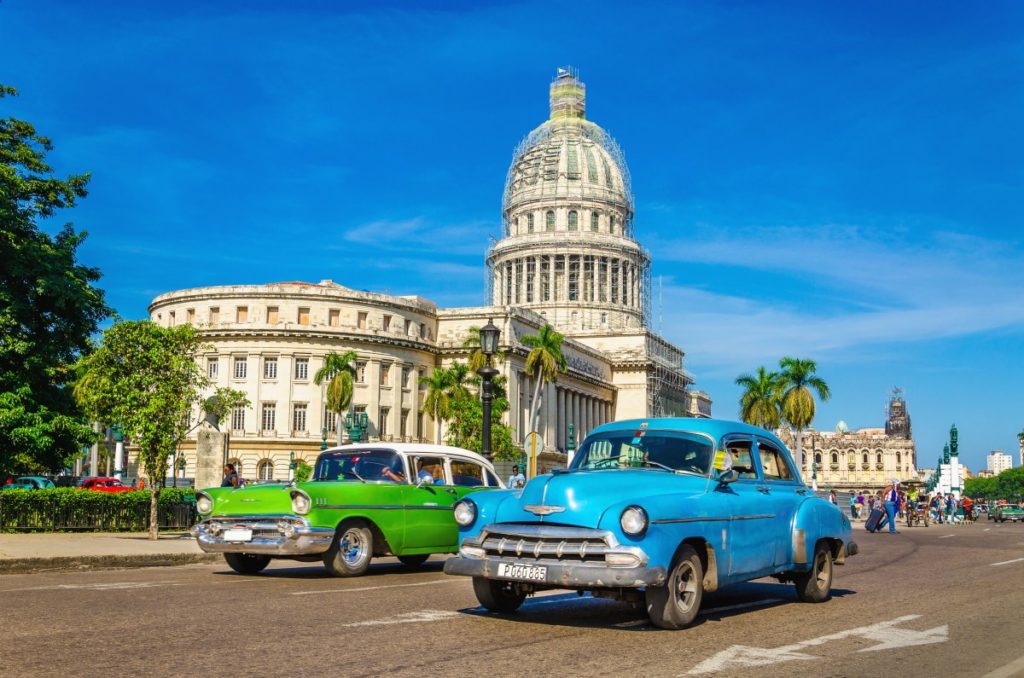Quick Look
- Cubans protest worsening conditions as the island faces power cuts, food scarcity, and demands for political freedoms.
- The government pledges dialogue while accusing Miami’s Cuban exile community and US sanctions of exacerbating the crisis.
- The US and Cuba are at a diplomatic crossroads, with both sides offering talks but accusing each other of inaction.
Cuba is at a critical juncture amid historic economic turmoil and social unrest. Over the weekend, a wave of rare public protests swept across the island, signalling a profound discontent with the current state of affairs. Fueled by hours-long power outages and a dire scarcity of essentials like food and medicine, Demonstrators took to the streets in a persistent demand for change. These protests, emerging in at least four cities, including the revolutionary cradle of Santiago de Cuba, highlighted a population pushed to the brink. The chants of “Patria y Vida,” echoing the sentiment of a popular anti-government anthem, underscored the growing clamour for political freedom and an end to the economic despair that has gripped the nation.
Cuban President Miguel Diaz-Canel, in a notable response, acknowledged the unrest and showed a willingness to engage in dialogue with the protesters. This readiness to listen and address the grievances marks a pivotal moment for the Cuban government, which traditionally has allowed little room for dissent. However, this openness comes against a backdrop of severe economic challenges. Inflation surges have drastically devalued the Cuban peso, making the cost of basic goods prohibitive for many. March saw a staggering increase in fuel prices by over 500%, further straining the financial capabilities of the Cuban people. Amid these crises, the island has also experienced frequent disruptions in power supply and ongoing shortages of crucial supplies, exacerbated by the COVID-19 pandemic.
The Economic Crisis and Protests
Cuba’s economic distress is not a sudden development but the culmination of long-standing issues that have progressively worsened. The inflationary spike, alongside the devaluation of the Cuban peso, has rendered many state salaries inadequate, making even the purchase of a carton of eggs a financial hurdle for the average Cuban. The substantial hike in fuel prices by the government in March only added to the burdens citizens faced, deepening the island nation’s economic fissures. This dire economic scenario has led to frequent power outages and a critical food, fuel, and medicine shortage, propelling many Cubans to flee to the United States for relief.
The protests, ignited by these acute hardships, reflect a broader discontent encompassing demands for political freedoms. Chants of “Patria y Vida” resonated through the streets, symbolizing a call for change that goes beyond economic grievances to touch the very core of Cuban identity and governance. While indicating a willingness to dialogue, the government’s response also carried accusations against external forces. President Diaz-Canel pointed fingers at “terrorists” in Miami’s Cuban exile community for inciting the protests online and criticized US sanctions for contributing to Cuba’s economic woes.
Diplomatic Tensions and International Relations
The unfolding events in Cuba have drawn domestic attention and captured the interest of international observers, including the United States. US diplomats, expressing concern over the protests, have called on the Cuban government to respect the human rights of the demonstrators. They also urged the government to address the legitimate needs of the Cuban people. The statement from the US embassy in Havana highlights the complex interplay of internal unrest and international diplomacy characterizing the current Cuban predicament.
On the diplomatic front, Cuban officials have tried to engage with the Biden administration, offering talks on various issues previously deemed non-negotiable, such as human rights. However, accusations of US interventionism and the US’s lack of response to Cuba’s overtures have strained relations further. Amid these tensions, Cuban Vice Minister of Foreign Relations Carlos Fernández de Cossío delivered a diplomatic note of protest to the US, denouncing the US’ alleged interventionist conduct.
The Road Ahead
As Cuba navigates this tumultuous period, the path forward remains fraught with challenges. The government has pledged to address its people’s complaints and engage in dialogue, representing a potential starting point for reconciliation and reform. However, the deep-seated economic issues and the demand for political freedoms suggest that the road to resolution will be long and arduous. Internationally, the dynamic between Cuba and the United States is changing. Diplomacy and accusations of interventionism are shaping the discourse. The outcome of these complex interactions will undoubtedly have a profound impact on the future of Cuba. This impact will be felt both domestically and in its relations with the broader international community.











